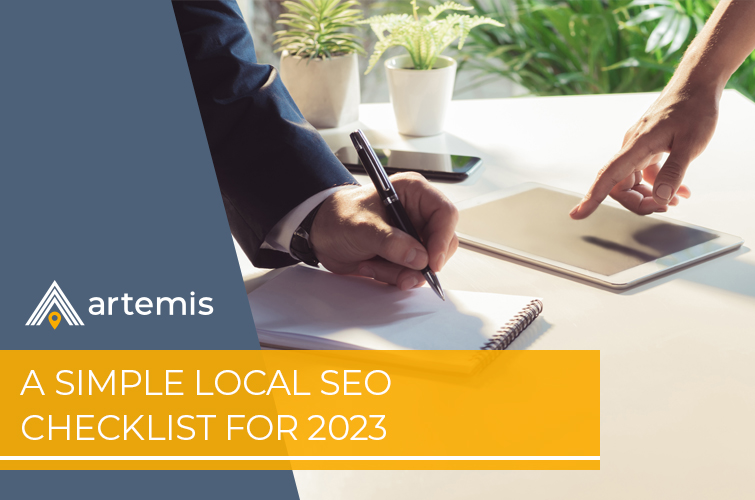A Simple Local SEO Checklist for 2023

For any business with physical premises or offering a service over a specific area, good local SEO work is essential to help you rank higher and get more customers to your site. In 2023, you need to get the basics right if you want to have success.
In this blog, we provide a simple checklist for you to use to establish whether you’ve got all the basics in place for your local SEO. If you see anything on this list that your business isn’t currently doing, now is the perfect time to implement them:
-
Set up, manage, and optimise your Google Business Profile
Google Business Profile (GBP) is a free tool offered by Google that can help local businesses to maximise how they are displayed in search results. Your GBP profile is likely to be the first way that a customer will see you in a Google or Google Maps search – and if the information is correct it can provide them with an immediate way to find directions to you, or call you, plus a lot more.
Once you have claimed your GBP, you can get to work filling it out and optimising it. Going into too much detail would be a bit much for this checklist, but some of the key ways that you can manage and optimise your GBP include:
- Make sure your information is accurate – check all the key details (address, phone number, email address) and ensure they are consistent with what’s on your website.
- Complete as much as possible – there are many sections on your GBP, make sure you fill out as many of them as you can.
- Add pictures –add a range of pictures to your GBP, it’s a good idea to include your logo, as well as photos of the exterior and interior of your building, and your team.
-
Create geo pages
It is important for any business with physical premises to create landing pages that target specific locations; these are known as geo pages. They are a critical component of local SEO designed to provide information about your business that is relevant to the specific locations where you operate.
The pages that you create should contain location-based keywords and focus on content that displays knowledge and expertise of the local area. This will help Google understand that your business is located in a particular area and increases the likelihood that your website will appear in local search results.
-
Focus on local keywords
Getting your keywords right is a vital part of SEO – but it is especially relevant in local SEO. Local keywords are phrases that include your business’ location and are used by people when searching for businesses in their local area.
To find the best local keywords for your business, you should start by conducting keyword research using tools like Google’s Keyword Planner. This will help you identify the most relevant keywords for your business and locality.
Once you have identified the local keywords that are most relevant to your business, you should aim to incorporate them into your website’s content in a natural and relevant way. This might include using them in your website’s headlines, subheadings, and body text, as well as in your meta tags and descriptions.
-
Maintain a strong blog
Having a blog on your business website can be a great way to improve your local SEO. By regularly publishing high-quality, informative blog posts, you can provide valuable content to your audience and establish your business as an authority in your industry. To maintain a strong blog, there are a few key things you should keep in mind:
- Be consistent – publish blog posts on a regular schedule, whether that’s once a week, twice a month, or another schedule that works for you.
- Focus on quality – prioritise quality over quantity. It’s better to publish fewer high-quality posts than to churn out lots of low-quality content.
- Include local content – this might include information about local events, attractions, or news that is relevant to your business and your local audience.
- Promote your posts – once you’ve published a blog post, don’t just let it sit on your website. Share it on social media, include it in your email newsletter, and consider reaching out to other websites or publications that might be interested in featuring your content.
-
Encourage and respond to reviews
Reviews and customer feedback are increasingly important to your website. Google loves to see customers leaving reviews and interacting with your brand. So it is really worth doing everything you can to encourage customers to leave their feedback, either on Google itself or via a trusted reviews platform like Trustpilot.
It’s also worth noting that you should always respond to any reviews you see online – positive or negative. With negative reviews, don’t be tempted to react angrily, but rather try to placate the reviewer.
-
Build powerful backlinks
Building strong backlinks is well-known as one of the cornerstones of SEO. But it is sometimes overlooked just how much of an impact can be made by prioritising links from other local sources. Google loves to see highly relevant links, so ensure that any link-building campaign you are carrying out for your site puts a focus on local links.
At Artemis, we have extensive experience providing high-quality local SEO work for businesses across the UK. If you are interested in working with us, please get in contact with our experienced team today.

